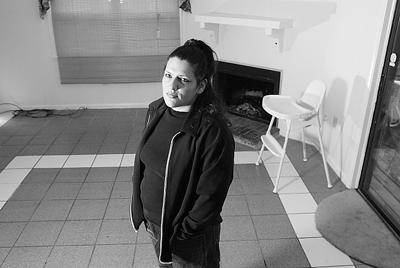Georgia woman regains custody, after removal by state over allegations of abuse
A Georgia mother who claims her children were taken from her because she is a lesbian won a unanimous reversal from a state appeals court on December 16.
Writing for the court, Judge John H. Ruffin, Jr., said that state officials had made “no effort whatsoever to demonstrate that the children are deprived, much less that such deprivation results from the mother’s lifestyle.”
The mother, unnamed in the court’s opinion but identified in a December 18 Associated Press story as Amber Crosby, has two children, a six-year-old son and a four-year-old daughter, who were living with her and her partner, Angela Martin. The son’s biological father is Curtis Colter, and the daughter’s father is Robert Sessoms.
According to Ruffin’s opinion, Colter’s wife, Crystal, contacted the Richmond County Department of Family and Children Services (DFCS) shortly after Curtis’ paternity had been established, claiming that the children were endangered living with Crosby and Martin, and that her husband’s son should be living with the Colters.
This sparked an investigation by the DFCS which, relying on rumors and hearsay, compiled a report claiming that Martin was abusing Crosby and that the women were smoking marijuana in front of the children. DFCS imposed various conditions on Amber’s continued custody of the children and then, claiming the conditions had been violated, took them out of the home into the agency’s custody.
This led to proceedings before the Richmond County Juvenile Court, in which the Colters’ attorney took the lead role in place of the county attorney. Even though no direct evidence was presented by anybody to support the charges that the children were being deprived in any way, Juvenile Court Judge Herbert Kernaghan, Jr., signed an order in February removing the children from Crosby’s home. Kernaghan ordered that the son should go to the Colters and the daughter was sent to Crosby’s maternal grandparents.
Kernaghan purported to base his order on five findings: the conclusion in the DFCS report that Martin was physically abusing Crosby in the presence of the children; the report from “family members” that there was domestic violence between the women; Crosby’s admission that she had used marijuana in the past “on a regular basis”; Crosby’s failure to submit to a drug screening test within 24 hours; and Crosby and Martin’s “lesbian relationship.”
The court of appeals found that none of these purported reasons stood up to review. The first two findings were found to be based on second-hand reports that were the basis for the DFCS report, which Ruffin discounted. As to the marijuana issue, Ruffin found that the trial court had overstated the evidence, since Crosby had merely admitted to having smoked pot “on occasion,” not “regularly,” and DFCS “completely failed to establish how this conduct was relevant to a finding of deprivation.”
Ruffin also found that Crosby’s failure to take the drug test within 24 hours was due to the failure of DFCS to schedule the test.
“The mother cannot be held accountable for DFCS’ failure to schedule the test,” Ruffin asserted.
But, most importantly, Ruffin found that the trial judge had improperly drawn an adverse conclusion based on Crosby’s “lifestyle.”
“Assuming that the mother’s relationship with Martin should factor into the juvenile court’s analysis,” wrote Ruffin, “it should not be a determining factor unless it is shown that the children have been or might be harmed in some manner by their mother’s lifestyle. Here, DFCS made no effort whatsoever to demonstrate that the children are deprived, much less that such deprivation results from the mother’s lifestyle.”
Thus, the court concluded, “the juvenile court erred in removing the children from their mother’s custody.”
Beth Littrell, an American Civil Liberties Union attorney who assisted with the appeal, told the Associated Press that the appeals court had found the trial court’s decision to be a “travesty” and “righted this wrong.”
A spokesperson for the state attorney general’s office said that it was “doubtful the state would have any grounds to appeal.”



































